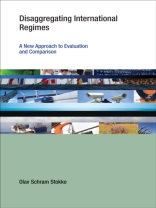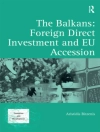A methodology for evaluating and comparing the effectiveness of international regimes is developed and applied to a successful example of such a regime.Evaluating the effectiveness of international regimes presents challenges that are both general and specific. What are the best methodologies for assessment within a governance area and do they enable comparison across areas? In this book, Olav Schram Stokke connects the general to the specific, developing new tools for assessing international regime effectiveness and then applying them to a particular case, governance of the Barents Sea fisheries. Stokke’s innovative disaggregate methodology makes cross-comparison possible by breaking down the problem and the relevant empirical evidence.Stokke employs fuzzy-set qualitative comparative analysis, and his approach is disaggregate in three ways: it separates the specific governance problem into its cognitional, regulatory, and behavioral components; it splits into three the counterfactual analysis of what the outcome would have been if the regime had not existed; and it decomposes the empirical evidence to maximize the number of observations. By applying this methodology to a regional resource regime known as one of the world’s most successful, Stokke bridges the gap between the intensive case study analyses that have dominated the field and increasingly ambitious efforts to devise quantitative methods for examining the causal impacts of regimes. Stokke’s analysis sheds light on the implementation and the interaction of international institutions, with policy implications of regime design and operation.
Olav Schram Stokke
Disaggregating International Regimes [PDF ebook]
A New Approach to Evaluation and Comparison
Disaggregating International Regimes [PDF ebook]
A New Approach to Evaluation and Comparison
购买此电子书可免费获赠一本!
语言 英语 ● 格式 PDF ● 网页 368 ● ISBN 9780262305785 ● 出版者 The Mit Press ● 发布时间 2012 ● 下载 3 时 ● 货币 EUR ● ID 8105320 ● 复制保护 Adobe DRM
需要具备DRM功能的电子书阅读器












